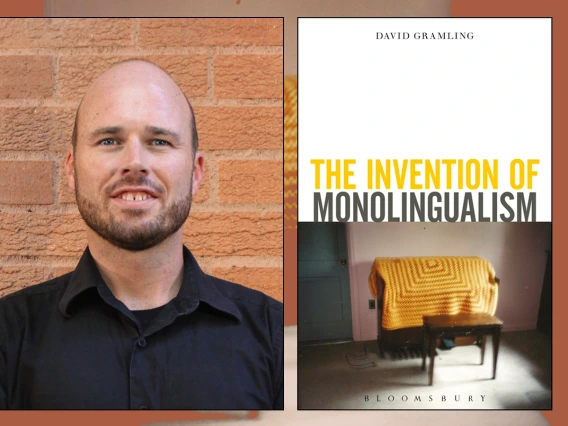
David Gramling, UA associate professor of German Studies, won the 2018 American Association for Applied Linguistics Book Award for The Invention of Monolingualism.
The AAAL awards books “that make an exceptional contribution to the field as a whole or to a specific area of specialization.” The Book Award is given biennially. Gramling will be presented with the award at the AAAL conference in Chicago in March.
Gramling’s book, released in 2016 by Bloomsbury Publishing USA, harnesses literary studies, applied linguistics, translation studies, and cultural studies to offer a groundbreaking investigation of monolingualism.
After briefly describing what "monolingual” means in scholarship and public discourse, and the pejorative effects this common use may have on non-elite and cosmopolitan populations alike, Gramling sets out to discover a new conception of monolingualism.
Along the way, he explores how writers of Turkish, English, Spanish, German and other languages have in recent decades confronted monolingualism in their texts, and how they have critiqued the World Literature industry’s increasing hunger for “translatable” novels.
Much of the initial research included in the book was supported by UA’s Confluence Center for Creative Inquiry. An initial version was presented as a plenary address in 2011 at the UA Second Language Acquisition and Teaching Roundtable, sponsored by the SLAT GIDP.
The book has been well received in the fields of applied linguistics and second language acquisition and teaching. In a review, Alison Phipps, professor of Languages and Intercultural Studies at the University of Glasgow, said “Every now and then a book comes along which is simply compelling with its breadth and depth of argument, its dazzling examples and its sheer boldness of vision. This is one of the most important books to be written on languages, monolingualism and multilingualism I have read. It will make you think about monolingualism and about languages in quite new ways.”

